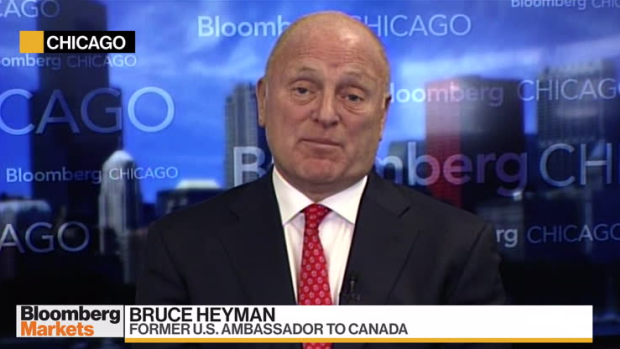Aug 16, 2018
Trump would be 'abusing his power' with auto tariffs: Heyman

U.S. President Donald Trump would be abusing his power by implementing auto tariffs, according to a former U.S. Ambassador to Canada.
“I think that [with] the use of tariffs under [Trade Expansion Act Section] 232, the President is effectively abusing the power that Congress gave him and, you know, at some point Congress is going to have to step up and rein the President in on this,” Bruce Heyman told BNN Bloomberg in an interview on Thursday. “If he goes the auto route, I think that might be a bridge too far.”
However, Heyman cautioned that this does not necessarily mean Trump won’t move ahead with them in any event.
“I never want to second-guess the moves that this President is making, because he continues to move, I think, over the line in terms of what is responsible and legal,” Heyman said. “In this particular case, my view is that this would be not only damaging to Mexico and Canada and other nations, but it would really hurt the U.S. economy pretty significantly.”
With the U.S. mid-term elections looming in November, the move could have a damaging effect on the Republican congressional outlook, in addition to possibly harming the U.S. markets.
“This would be very harmful to the President and Republican Party if he imposes this before mid-terms,” Heyman said. “Both economically and politically, I don’t think he’s going to do it. But, if he does, it would be more harmful than people think and I think it would rattle the markets.”
On the trade agreement front, Heyman expressed some optimism that the U.S. appears near an agreement with Mexico on automotive industry regulations, but stated that more heavy lifting could be ahead as the North American Free Trade Agreement faces yet another soft deadline.
“The movement ahead with Mexico and, potentially getting something resolved on the auto side breaks one of the several impasses that existed. Now, we still have sunset clause and dispute resolution and other things that would have to get resolved quickly for this to sign off,” he said.
Heyman estimated that to get a deal done before outgoing Mexican President Enrique Pena Nieto’s term ends on Dec. 1, an agreement in principle would need to be signed within the next two weeks.
“We’ve passed a series of deadlines,” Heyman said.
“But, if this is going to get done, the U.S. is going to have to make significant changes in their view on the sunset clause and [the] Chapter 19 [dispute resolution mechanism]. Otherwise, I’m skeptical that this will get done and we’ll just pass another one of these several deadlines that we seem to bump up against.”
